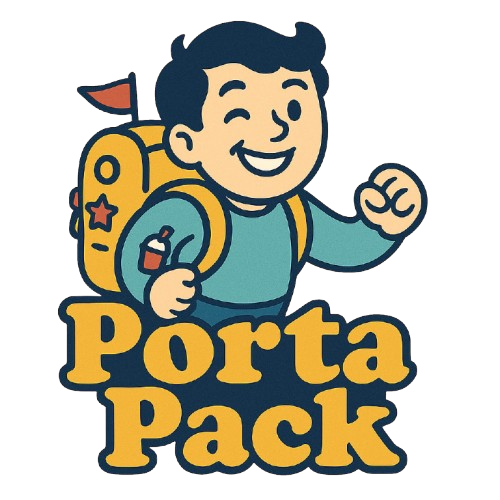PortaPack Architecture
Overview
PortaPack is a sophisticated tool that bundles entire websites—HTML, CSS, JavaScript, images, and fonts—into self-contained HTML files for offline access. This document outlines the architectural components that make up the system.
graph TD
CLI[CLI Entry Point] --> Options[Options Parser]
Options --> Core
API[API Entry Point] --> Core
subgraph Core ["Core Pipeline"]
Parser[HTML Parser] --> Extractor[Asset Extractor]
Extractor --> Minifier[Asset Minifier]
Minifier --> Packer[HTML Packer]
end
subgraph Recursive ["Advanced Features"]
WebFetcher[Web Fetcher] --> MultipageBundler[Multipage Bundler]
end
WebFetcher --> Parser
Core --> Output[Bundled HTML]
MultipageBundler --> Output
subgraph Utilities ["Utilities"]
Logger[Logger]
MimeUtils[MIME Utilities]
BuildTimer[Build Timer]
Slugify[URL Slugifier]
end
Logger -.-> CLI
Logger -.-> Core
Logger -.-> Recursive
MimeUtils -.-> Extractor
MimeUtils -.-> Parser
BuildTimer -.-> CLI
BuildTimer -.-> API
Slugify -.-> MultipageBundlerEntry Points
CLI Interface
The command-line interface provides a convenient way to use PortaPack through terminal commands:
| Component | Purpose |
|---|---|
cli-entry.ts | Executable entry point with shebang support |
cli.ts | Main runner that processes args and manages execution |
options.ts | Parses command-line arguments and normalizes options |
API Interface
The programmatic API enables developers to integrate PortaPack into their applications:
| Component | Purpose |
|---|---|
index.ts | Exports public functions like pack() with TypeScript types |
types.ts | Defines shared interfaces and types for the entire system |
Core Pipeline
The bundling process follows a clear four-stage pipeline:
1. HTML Parser (parser.ts)
The parser reads and analyzes the input HTML:
- Uses Cheerio for robust HTML parsing
- Identifies linked assets through element attributes (href, src, etc.)
- Creates an initial asset list with URLs and inferred types
- Handles both local file paths and remote URLs
2. Asset Extractor (extractor.ts)
The extractor resolves and fetches all referenced assets:
- Resolves relative URLs against the base context
- Fetches content for all discovered assets
- Recursively extracts nested assets from CSS (@import, url())
- Handles protocol-relative URLs and different origins
- Provides detailed logging of asset discovery
3. Asset Minifier (minifier.ts)
The minifier reduces the size of all content:
- Minifies HTML using html-minifier-terser
- Minifies CSS using clean-css
- Minifies JavaScript using terser
- Preserves original content if minification fails
- Configurable through command-line flags
4. HTML Packer (packer.ts)
The packer combines everything into a single file:
- Inlines CSS into
<style>tags - Embeds JavaScript into
<script>tags - Converts binary assets to data URIs
- Handles srcset attributes properly
- Ensures proper HTML structure with base tag
Advanced Features
Web Fetcher (web-fetcher.ts)
For remote content, the web fetcher provides crawling capabilities:
- Uses Puppeteer for fully-rendered page capture
- Crawls websites recursively to specified depth
- Respects same-origin policy by default
- Manages browser instances efficiently
- Provides detailed logging of the crawl process
Multipage Bundler (bundler.ts)
For bundling multiple pages into a single file:
- Combines multiple HTML documents into one
- Creates a client-side router for navigation
- Generates a navigation interface
- Uses slugs for routing between pages
- Handles page templates and content swapping
Utilities
Logger (logger.ts)
- Customizable log levels (debug, info, warn, error)
- Consistent logging format across the codebase
- Optional timestamps and colored output
MIME Utilities (mime.ts)
- Maps file extensions to correct MIME types
- Categorizes assets by type (CSS, JS, image, font)
- Provides fallbacks for unknown extensions
Build Timer (meta.ts)
- Tracks build performance metrics
- Records asset counts and page counts
- Captures output size and build duration
- Collects errors and warnings for reporting
URL Slugifier (slugify.ts)
- Converts URLs to safe HTML IDs
- Handles special characters and normalization
- Prevents slug collisions in multipage bundles
Asynchronous Processing
PortaPack uses modern async patterns throughout:
- Promise-based Pipeline: Each stage returns promises that are awaited
- Sequential Processing: Assets are processed in order to avoid overwhelming resources
- Error Boundaries: Individual asset failures don't break the entire pipeline
- Resource Management: Browser instances and file handles are properly closed
Build System
PortaPack uses a dual build configuration:
| Build Target | Format | Purpose |
|---|---|---|
| CLI | CommonJS (.cjs) | Works with Node.js and npx |
| API | ESModule (.js) | Modern import/export support |
TypeScript declarations (.d.ts) are generated for API consumers, and source maps support debugging.
Current Limitations
Script Execution Issues
- Inlined scripts with
async/deferattributes lose their intended loading behavior - ES Modules with import/export statements may fail after bundling
- Script execution order can change, breaking dependencies
Content Limitations
- CORS policies may prevent access to some cross-origin resources
- Only initially rendered content from SPAs is captured by default
- Very large sites produce impractically large HTML files
Technical Constraints
- No streaming API or WebSocket support
- Service worker capabilities are not preserved
- Memory pressure with large sites
- Limited support for authenticated content
